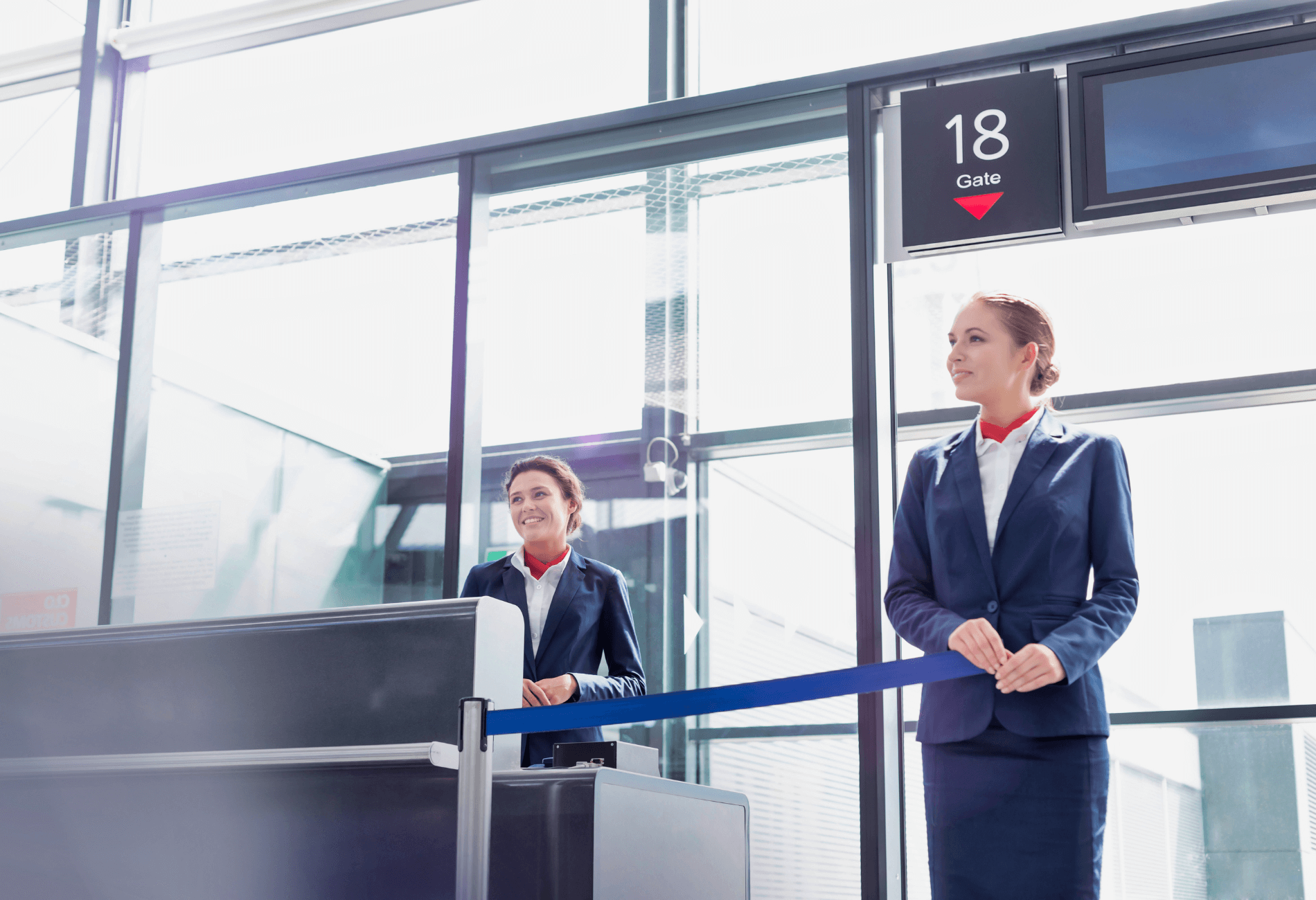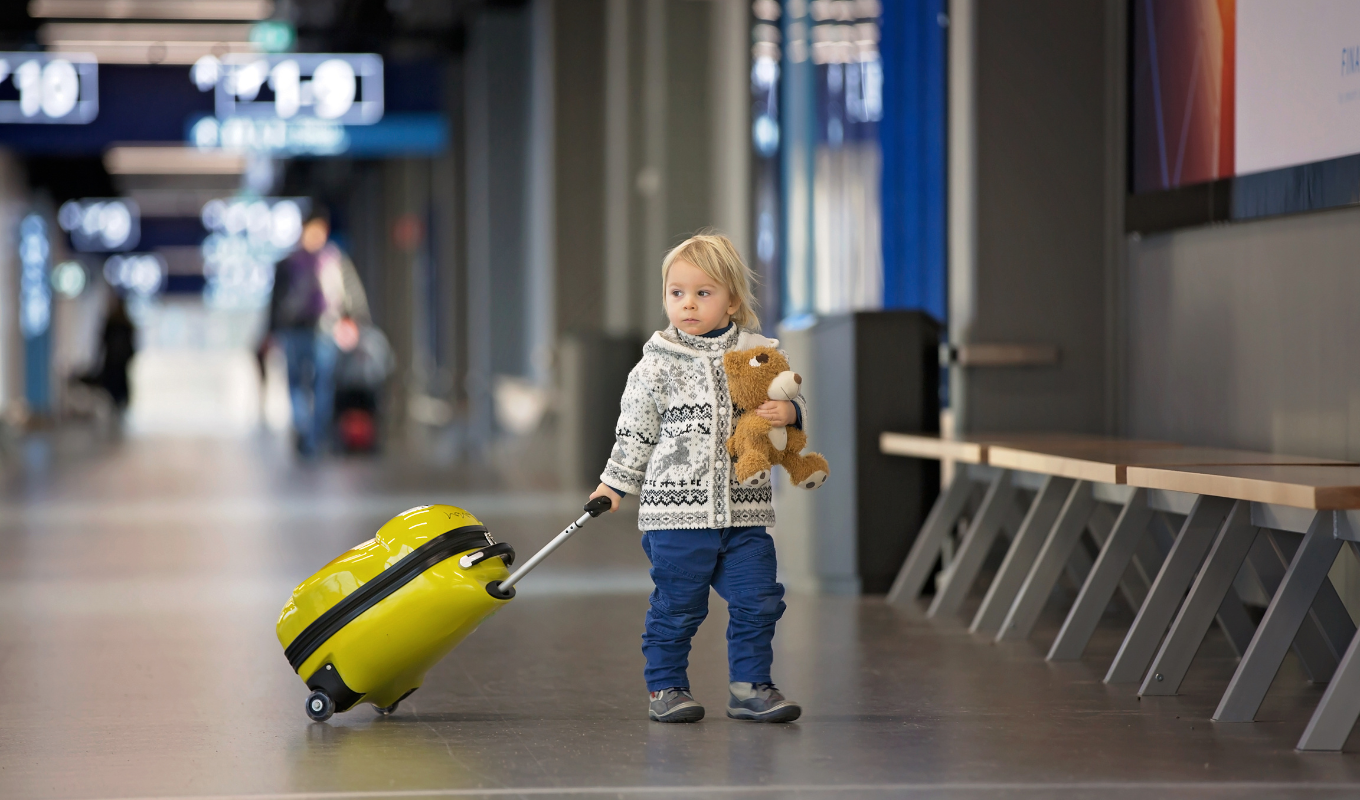Why do airlines overbook flights? And are you entitled to bumped flight compensation if you’re one of the unlucky ones denied boarding? It’s a frustrating phenomenon—and airlines do it on purpose.
If you’ve ever been involuntarily denied boarding, you know it can completely derail your travel plans.
Here’s everything you need to know about bumped flights, including what your rights are, what to do if it happens to you, making the most of bumped flight compensation, and tips for avoiding bumped flights altogether.
What does it mean to be bumped from a flight?
Being bumped from a flight, also known as involuntary denied boarding, occurs when you are denied a seat on a plane despite having a confirmed ticket. This typically happens because the airline has oversold the flight, expecting that not all passengers will show up. However, when more passengers arrive than expected, some travelers are left without a seat.
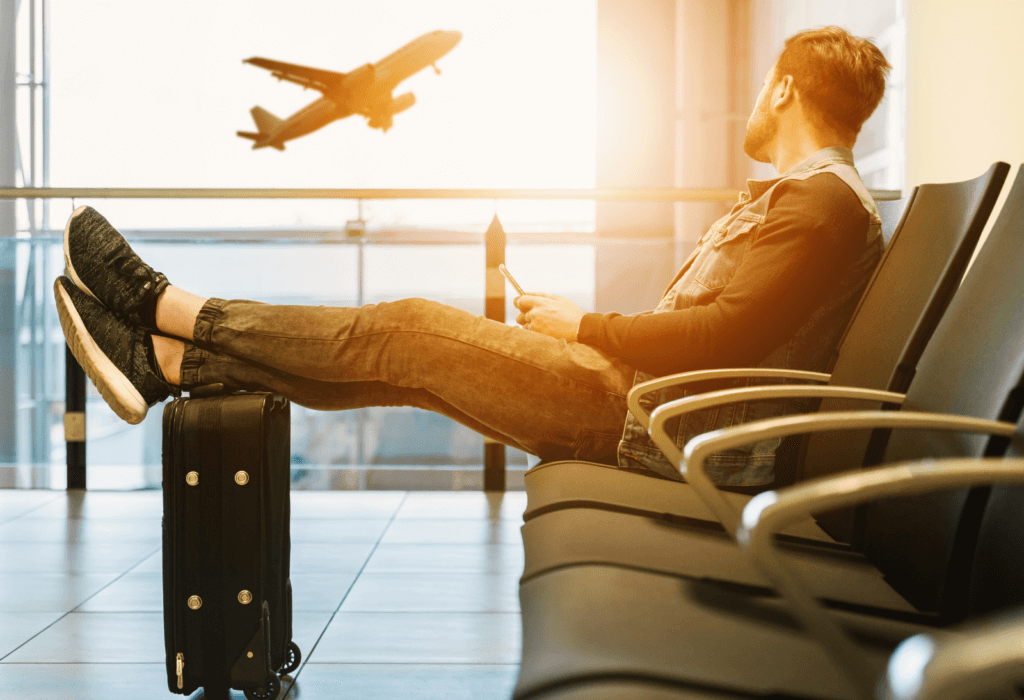
Is overbooking flights illegal?
Overbooking flights is not illegal; in fact, it’s a common practice among airlines.
Why do airlines overbook flights? Because carriers are looking to maximize revenue, as flights with empty seats mean lost profits.
Airlines rely on historical data to predict no-show rates and often sell more tickets than available seats to account for this.
What is voluntary bumping?
When the airline’s algorithm miscalculates and there aren’t enough seats for all passengers, the airline is required to first seek volunteers willing to give up their seats. This is called voluntary bumping.
This usually happens before boarding, at the gate, rather than on the airplane.
Here’s how it works:
Before boarding at the gate: Airlines typically realize they have overbooked a flight while passengers are still at the gate. They will make an announcement asking for volunteers willing to be bumped from the flight. These passengers are often offered bumped flight compensation, such as cash, vouchers, or other incentives, as well as a seat on a later flight.
Compensation offers: The airline may start with a lower bumped flight compensation offer and gradually increase it if not enough passengers volunteer. The amount offered can vary depending on factors like the length of the delay and the flight’s destination.
Volunteers: Passengers who are flexible with their travel plans are often more likely to volunteer for bumping, especially when the bumped flight compensation is appealing. Once enough passengers volunteer, the airline can adjust the passenger list and allow the rest to board.
Voluntary bumping can happen after passengers have already boarded, too, as a result of the airline either miscalculating how many passengers have already boarded; weight or balance restrictions; or an aircraft downgrade.
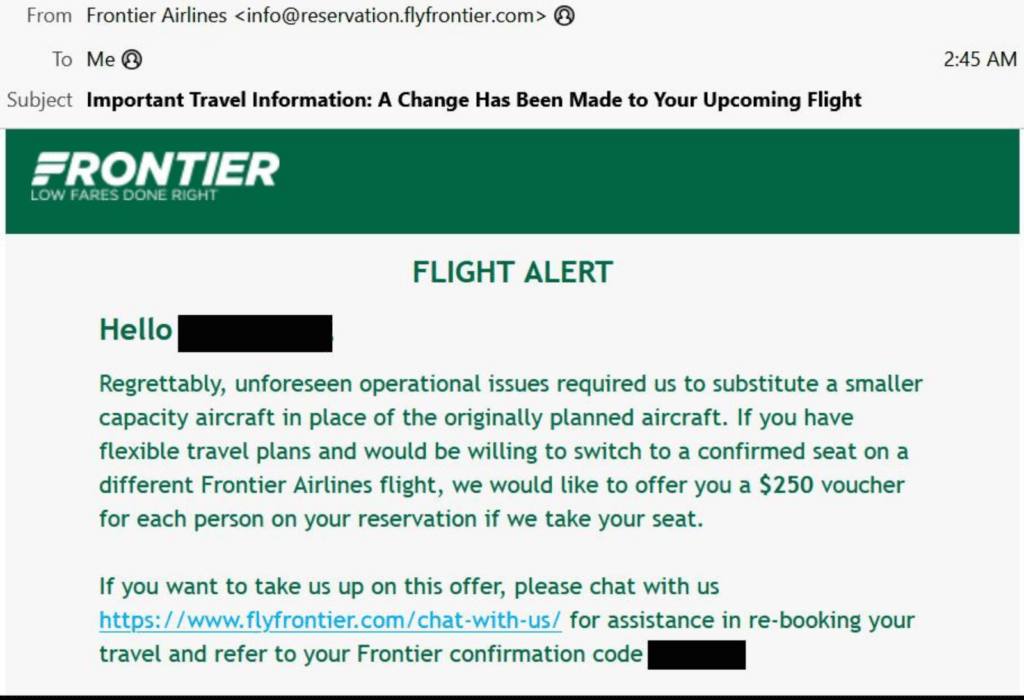
If not enough people come forward voluntarily, the airline might resort to involuntary bumping.
How likely is it to get bumped from a flight?
The likelihood of getting bumped from a flight varies depending on several factors, including the airline, route, and season. Generally, your odds of being bumped are low, but they increase during busy travel periods like holidays or major events when flights are more likely to be overbooked.
The US Department of Transportation reports that involuntary denied boarding incidents have decreased in recent years, thanks in part to stronger passenger rights and higher compensation rates.
However, some airlines still have higher bump rates than others.
A recent study determined the airlines most likely to bump passengers, either voluntarily or involuntarily, with Frontier Airlines topping the list, bumping over three passengers per 10,000— significantly higher than any other US airline. American Airlines, Spirit Airlines, and Southwest also make the list, but at much lower rates.
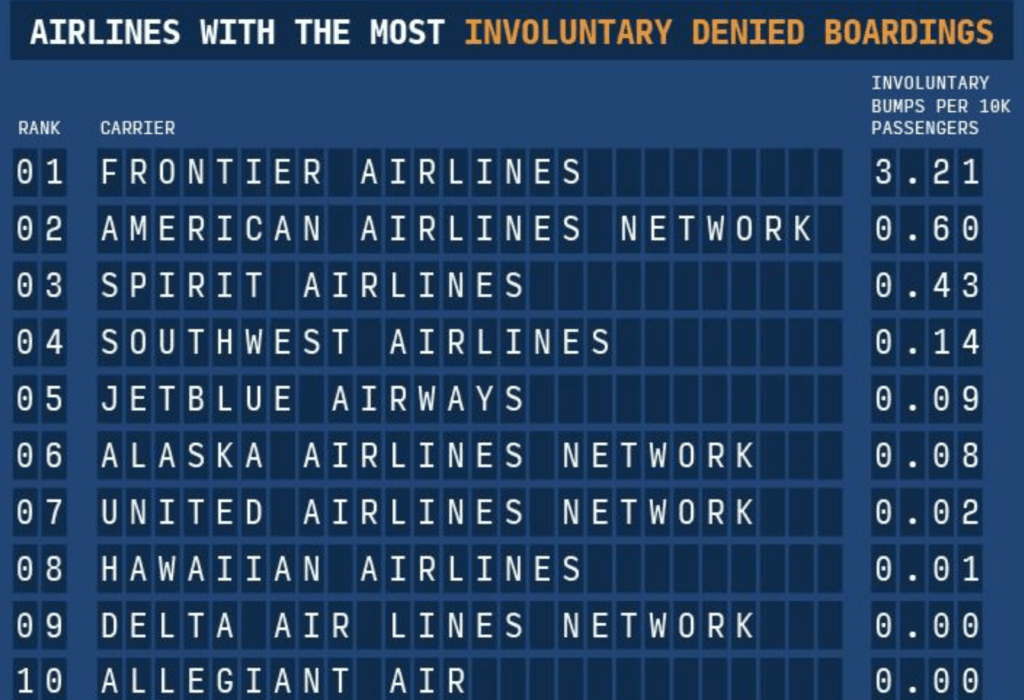
What to do if you get bumped from a flight
Now that you know why do airlines overbook flights, you likely want to know how to react.
If you find yourself bumped from a flight, here’s what you should do:
- Stay calm and speak to the gate agent: Politely ask why you were bumped and what your options are. Sometimes airlines will offer alternative flights or additional compensation on the spot.
- Request compensation: Under US law, if you are involuntarily denied boarding on a domestic flight, you are entitled to compensation. The amount varies depending on the length of the delay caused by the bump:
- 0-1 hour delay: No compensation.
- 1-2 hour delay: 200 percent of your one-way fare, up to $775.
- 2+ hour delay: 400 percent of your one-way fare, up to $1,550.
- Get the details in writing: Request a written statement from the airline explaining your rights and any compensation you are owed.
- Ask about alternate arrangements: Airlines must arrange an alternate flight to your destination at the earliest opportunity. You can also negotiate additional perks like lounge access or meal vouchers, especially during long delays.
- Keep receipts for expenses: If the bump leads to additional costs (like overnight stays or meals), keep your receipts and request reimbursement from the airline.
Cash compensation vs. vouchers
If you get bumped from a flight, it’s generally better to accept cash compensation rather than a voucher.
Cash is more flexible. It can be spent on anything, not just future flights. Vouchers, on the other hand, are limited to the airline, often with restrictions on dates or availability.
Cash also doesn’t expire, but vouchers usually have expiration dates, forcing you to use them within a certain time frame.
Vouchers often come with restrictions like blackout dates, fare classes, or limited availability, making them harder to redeem when you actually want to travel.
Furthermore, if the voucher covers a flight and there are taxes or extra fees, you might have to pay those out of pocket. Cash avoids this problem.

In some cases, the cash compensation can be higher than the voucher’s value, especially for involuntarily bumped passengers, since federal regulations mandate cash compensation based on how long you’re delayed.
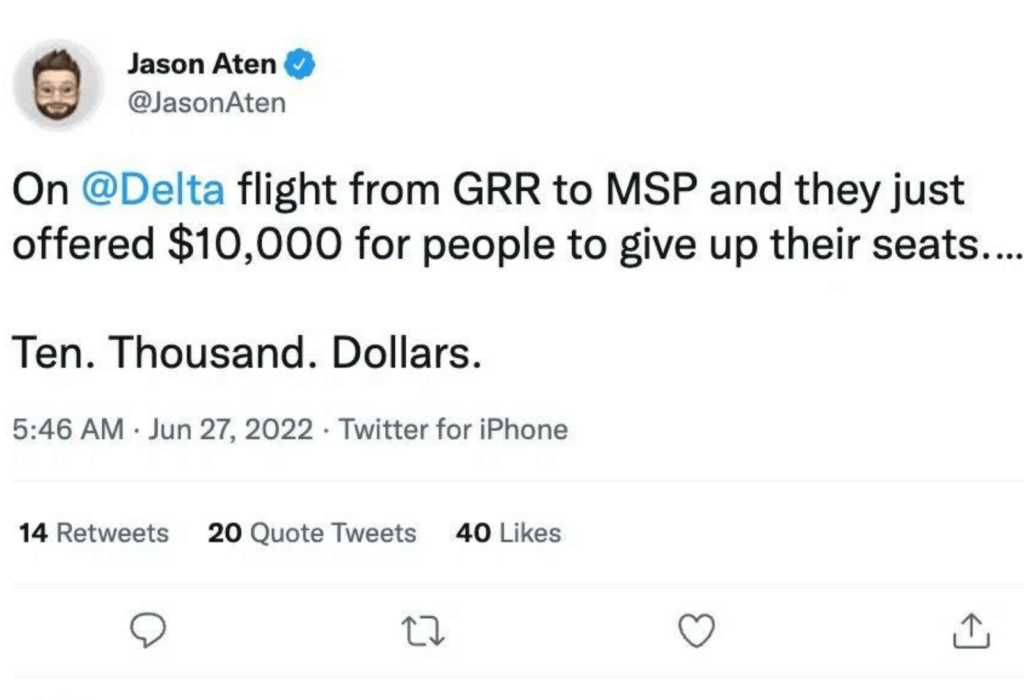
However, if you fly with the airline frequently and the voucher is significantly more than the cash offer, it might make sense to take the voucher, but carefully weigh the terms and limitations first.
Tips to avoid getting bumped from a flight
Why do airlines overbook flights? Because they can. And while you can’t control whether an airline overbooks a flight, there are steps you can take to reduce your chances of getting bumped:
- Check-in early: Passengers who check in late are often the first to be bumped. Always check in online as soon as it’s available—usually 24 hours before departure.
- Join the airline’s loyalty program: Frequent flyers and loyalty program members are less likely to be bumped. Even a basic membership can give you priority over non-members.
- Fly nonstop when possible: Connecting flights increase your risk of getting bumped, as overbooking on one leg of your journey can affect the entire trip.
- Avoid busy travel times: Flying during peak times increases your chances of being bumped. Opt for early morning or midweek flights when planes are generally less crowded.
- Book directly with the airline: Passengers who book through third-party sites may have a higher risk of getting bumped. Booking directly with the airline can sometimes offer more protection.
- Upgrade your seat: Passengers in premium cabins, business class, or those who pay extra for seat assignments are usually less likely to be bumped compared to economy travelers.
Final thoughts
While getting bumped from a flight can be a major inconvenience, knowing your rights and taking proactive steps can help you handle the situation calmly and effectively. Airlines often overbook to maximize profits, but by following the tips outlined above, you can reduce your chances of being the unlucky passenger left behind.
Understanding the process and knowing how to respond can make all the difference if you find yourself involuntarily denied boarding. And remember, bumped flight compensation is your right—so don’t hesitate to claim what you’re owed if it happens to you. Safe travels!

